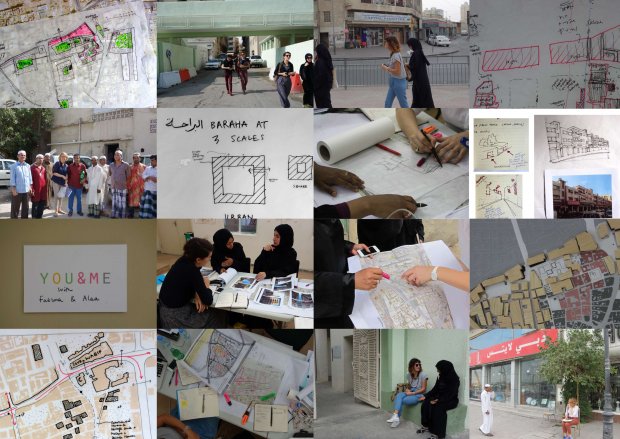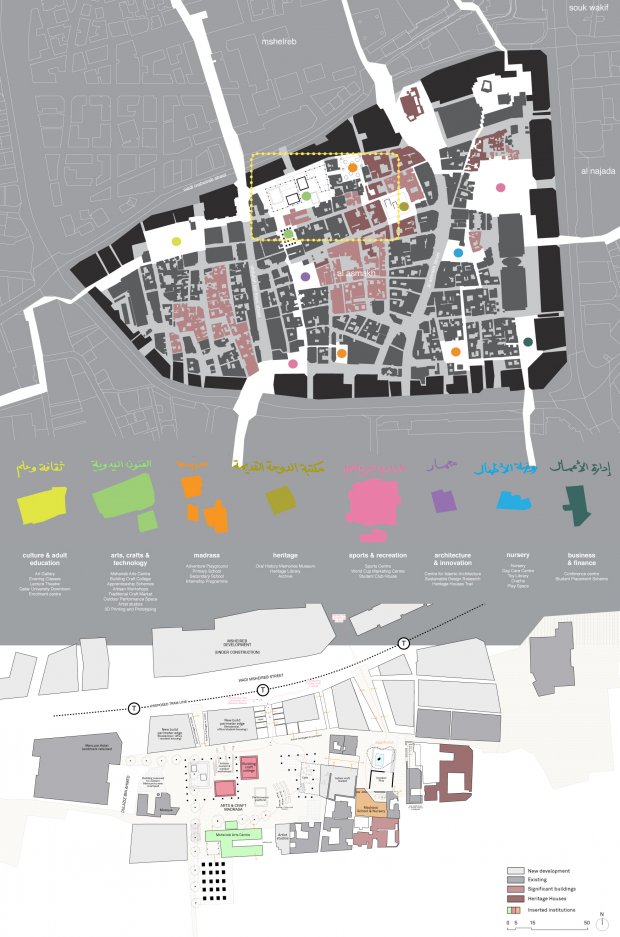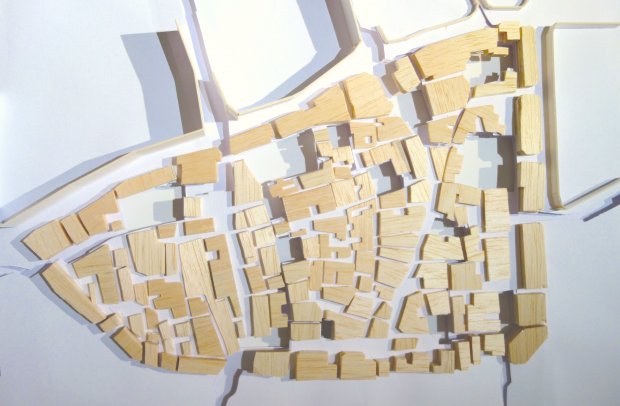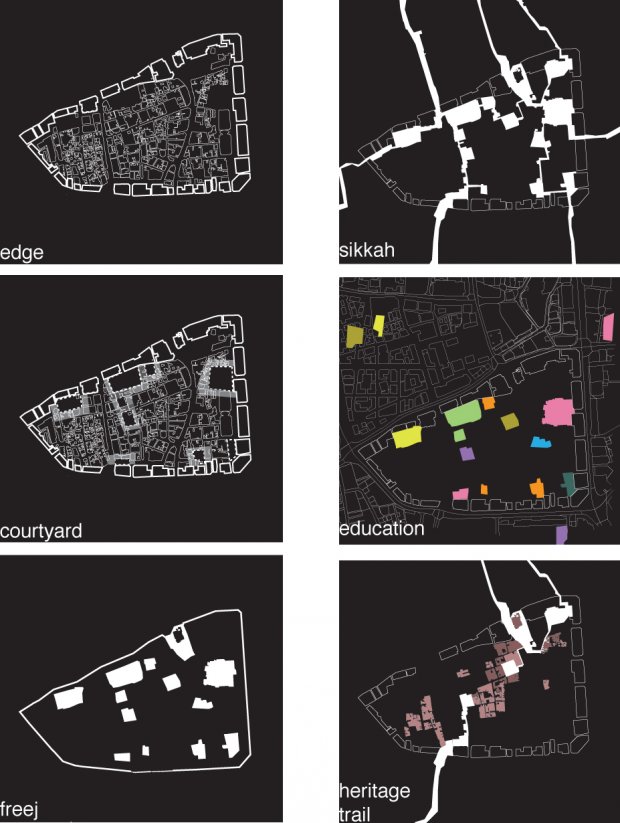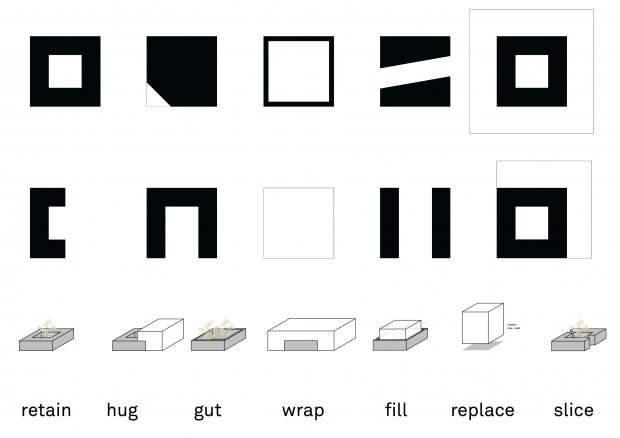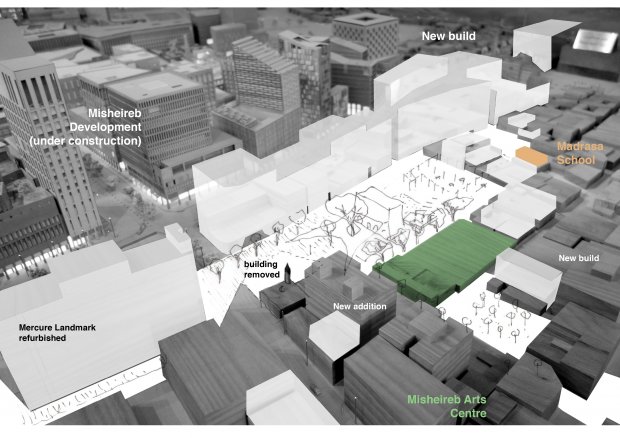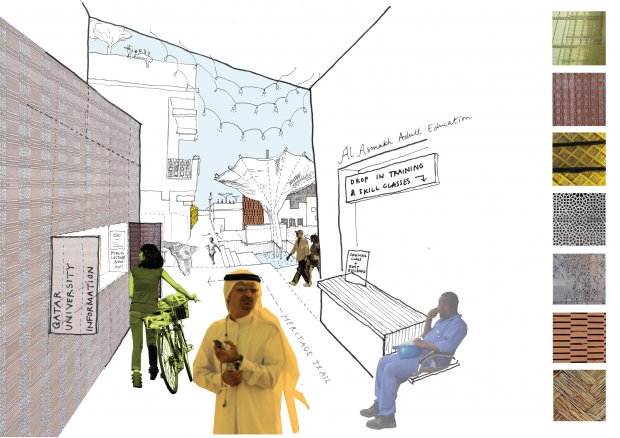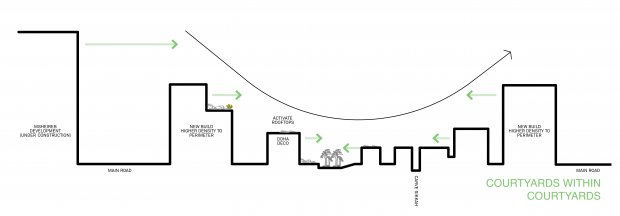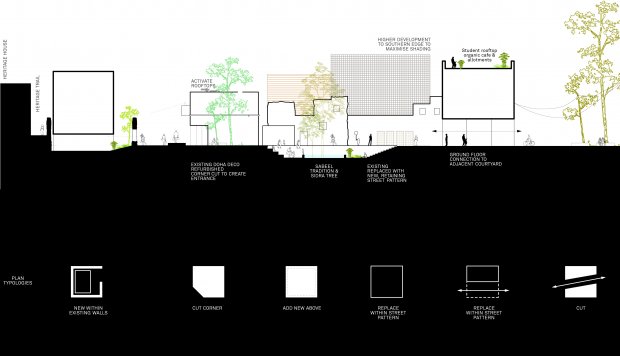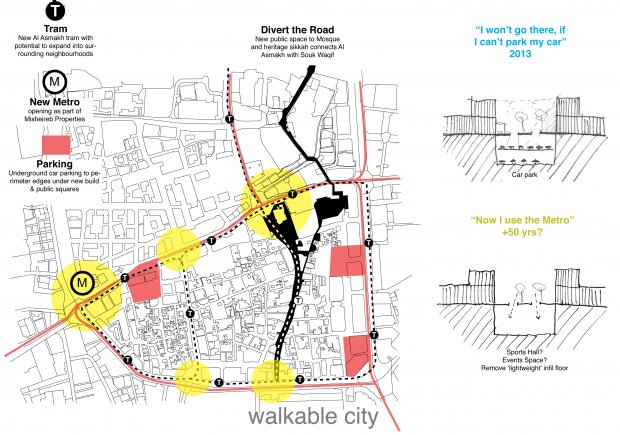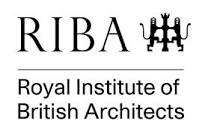Old Doha Prize

Masterplan for Al Asmakh & Najada, Doha
Winning proposal for Old Doha Prize competition organised by the British Council in association with RIBA, UCL, Qatar Museums Authority and Qatar UK 2013 and Msheireb Properties. Designs were developed in collaboration Qatari Architects Fatima Fawzzy from AEC Consultancy Office and Alaa Larri.
“How would you regenerate Doha's old city centre - learning from and referencing the historic street pattern and built form, whilst investigating appropriate elements of contemporary Qatari design - to create a vibrant and economically sustainable piece of city designed on a human scale?”
The neighbourhoods of Al Asmakh and Al Najada in Old Doha are reimagined as places for learning. Varying education programmes are injected into the site, acting as attractors and catalysts for growth and regeneration on a local as well as a global scale. Inspiration is derived from the Qatari vernacular, the courtyard as a madrasa and social place of learning, implementing it on the “macro” urban scale, as well as the “micro” scale.
The analogy of carving is used as a main conceptual tool: disparate vacant plots are identified around the site and reclaimed as carved courtyards of educational activity, connected by a network of sikkahs (routes) which also become activated as educational / cultural social spaces.
The existing urban fabric of the Old Doha is mostly retained but carved in order to enhance relationships and thresholds between public and private, old and new. A language of cutting, adding, filling, wrapping, slicing is adopted. The new additions are expressed as more lightweight structures which grow around the more heavyweight existing. New development is predominately to the outer perimeter edge of the site, bridging the boundary to the existing high-rise Msheireb development (currently under construction) and creating an inward facing urban courtyard.
Phase 1 of the proposal starts with joining the site to the city's heritage trail as well as building temporary housing for blue collar workers currently living on the site in substandard conditions.
The ambition of the proposal is to create a walkable, sustainable and ethical place, which protects the valuable architectural heritage and memory of the existing fabric but also enables it to become flexible and adaptable for the present and future of Qatar.
Judges and Facilitators included Angela Brady RIBA, Adrian Lahoud, Suad Al Amiry (Riwaq Centre), Ibrahim Mohamed Jaidah (Arab Engineering Bureau), Abdullah al Baker (Ministry of Municipality and Urban Planning), Tim Makower (Makower Architects), Marcial Echenique (Department of Architecture, University of Cambridge), Suha Ozkan (QMA).
Other teams included Harry Dobbs Design (Harry Dobbs & Rohilio Escarga), Calvin Chua & Georgios Eftaxiopoulos, Studio P (Peter Barry) and AR Urbanism (Riccardo Bobisse). All entries will be exhibited at the Museum of Islamic Arts in December 2013.
